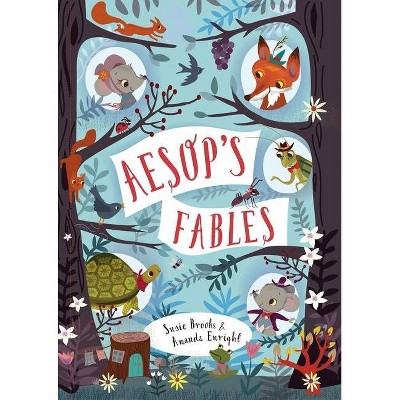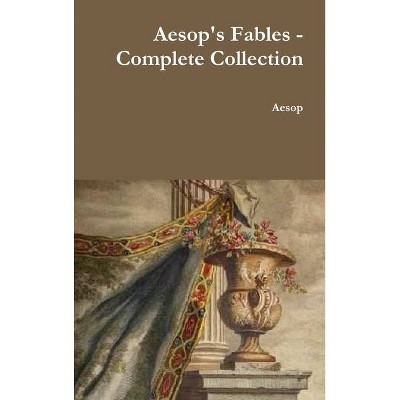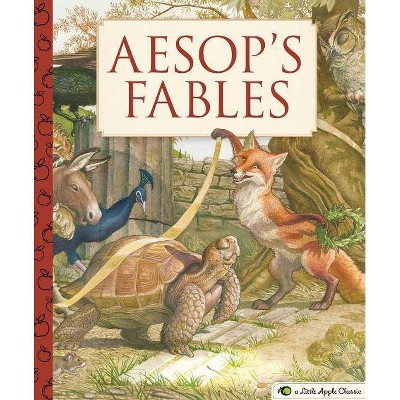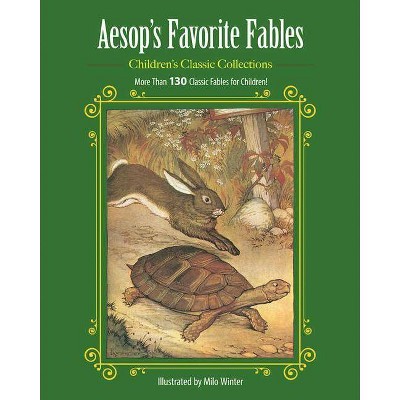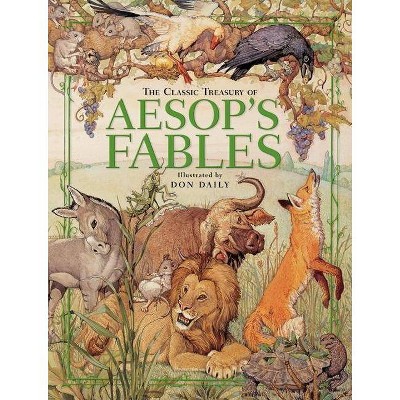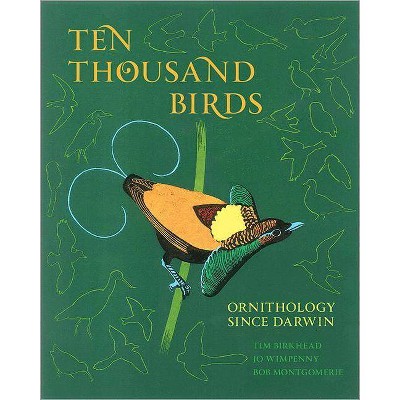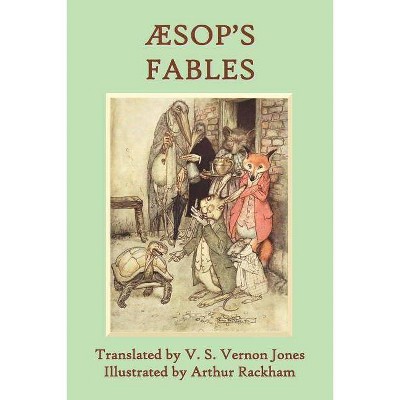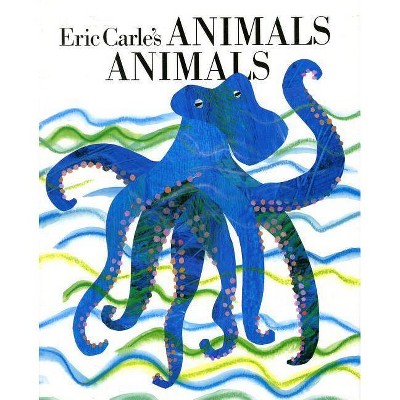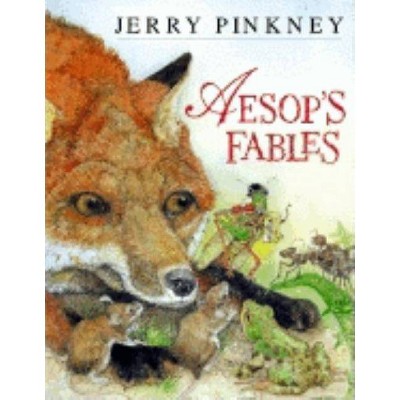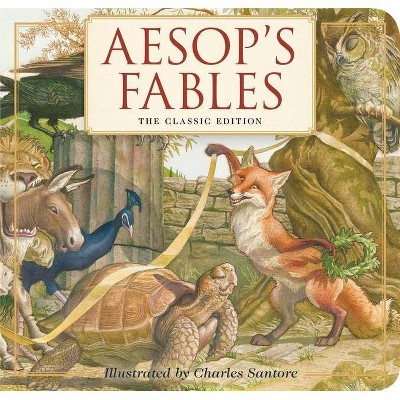Aesop's Animals - by Jo Wimpenny (Hardcover)
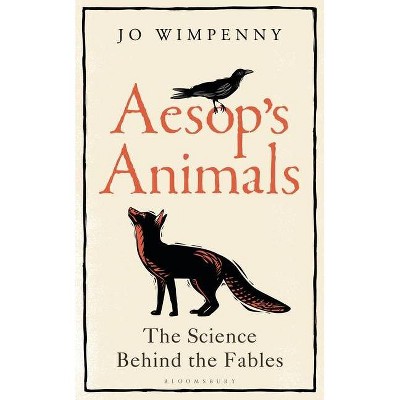
Similar Products
Products of same category from the store
AllProduct info
<p/><br></br><p><b> About the Book </b></p></br></br>"A critical look at the beloved fables that investigates whether there is any scientific truth to Aesop's portrayal of his animals. Despite being conceived over two-and-a-half thousand years ago, Aesop's Fables are still passed from parent to child today, and are embedded in our collective consciousness. The morals still inform our judgments, but have they influenced our views of the animal protagonists as well? And, if so, is there any truth behind the stereotypes? Are crows smart enough to reason? Are pigeons so dumb they cannot tell the difference between painting and reality? Are ants truly capable of looking ahead to the future and planning their actions? In Aesop's Animals, zoologist Jo Wimpenny turns a critical eye to the fables and ask whether there is any scientific truth to Aesop's portrayal of his animals. She brings the tales into the twenty-first century, introducing the latest scientific research on some of the most fascinating topics in animal behavior. Each chapter focuses on a different fable and a different topic in ethology, including future planning, tool use, self-recognition, cooperation and deception. At the end of each chapter, the author pulls together the evidence to assess whether Aesop's portrayal of the animals holds true from a modern, scientific perspective. Through interviews with leading researchers in the behavioral ecology, this book brings these famous tales back to life. People are always fascinated by animal behavior, especially studies that suggest the presence of intelligence and other 'human-like' characteristics that reveal how we may share more with these creatures than we ever imagined. Aesop's Animals builds on this, revealing cutting-edge research findings about animal abilities, as well as enabling the reader to explore and challenge their own preconceived notions about the animal kingdom." - publisher's description.<p/><br></br><p><b> Book Synopsis </b></p></br></br><p><b>A critical look at the beloved fables that investigates whether there is any scientific truth to Aesop's portrayal of his animals.</b> <p/>Despite being conceived over two-and-a-half thousand years ago, Aesop's Fables are still passed from parent to child today, and are embedded in our collective consciousness. The morals still inform our judgments, but have they influenced our views of the animal protagonists as well? And, if so, is there any truth behind the stereotypes? Are crows smart enough to reason? Are pigeons so dumb they cannot tell the difference between painting and reality? Are ants truly capable of looking ahead to the future and planning their actions? <p/>In <i>Aesop's Animals</i>, zoologist Jo Wimpenny turns a critical eye to the fables and ask whether there is any scientific truth to Aesop's portrayal of his animals. She brings the tales into the twenty-first century, introducing the latest scientific research on some of the most fascinating topics in animal behavior. Each chapter focuses on a different fable and a different topic in ethology, including future planning, tool use, self-recognition, cooperation and deception. At the end of each chapter, the author pulls together the evidence to assess whether Aesop's portrayal of the animals holds true from a modern, scientific perspective. <p/>Through interviews with leading researchers in the behavioral ecology, this book brings these famous tales back to life. People are always fascinated by animal behavior, especially studies that suggest the presence of intelligence and other 'human-like' characteristics that reveal how we may share more with these creatures than we ever imagined.<i> Aesop's Animals </i>builds on this, revealing cutting-edge research findings about animal abilities, as well as enabling the reader to explore and challenge their own preconceived notions about the animal kingdom.</p><p/><br></br><p><b> Review Quotes </b></p></br></br><br><p>"Come for the fables and stay for the behavioral research in this <b>jam-packed but delightful</b> collection ... <b><i>Aesop's Animals</i></b> is both an <b>intense and playful</b> look at how humans - storytellers and scientists alike - consider the mysteries inside the creatures with whom we share this planet." --<i>Scientific American</i> <p/>"Every once in a publisher's blue moon, along comes a book so simple and <b>original </b>in its concept that it <b>verges on brilliance </b>and 1,000 science and nature writers howl: Why did we not think of it? Such is <i>Aesop's Animals</i> by zoologist Jo Wimpenny, which does precisely what it says on the lid: it puts the anthropomorphic fables of Aesop <b>under the electron microscope of modern science</b>. [...] a clever cadastral survey of animal behavioural studies." --<i>Country Life</i> <p/>"<b>Engaging and comprehensive</b>, this is <b>highly readable</b> popular science." --<i>Hannah Beckerman, The Observer</i> <p/>"Wimpenny pumps life into the hard science and keeps her discussions accessible, offering plenty of insight into how humans interpret the natural world." --<i>Publishers Weekly</i> <p/>A spirited romp through modern cognitive ethology, including a revised appreciation of what it really means to have a 'bird brain.' Each chapter ends, satisfyingly, with a discussion of how much fact each featured fable contains. - <i>The Wall Street Journal</i></p><br><p/><br></br><p><b> About the Author </b></p></br></br>Jo Wimpenny is a zoologist and writer, with a research background in animal behavior and the history of science. She is a regular feature writer for BBC Wildlife.
Price History
Cheapest price in the interval: 22.99 on November 8, 2021
Most expensive price in the interval: 22.99 on December 20, 2021
Price Archive shows prices from various stores, lets you see history and find the cheapest. There is no actual sale on the website. For all support, inquiry and suggestion messages communication@pricearchive.us
